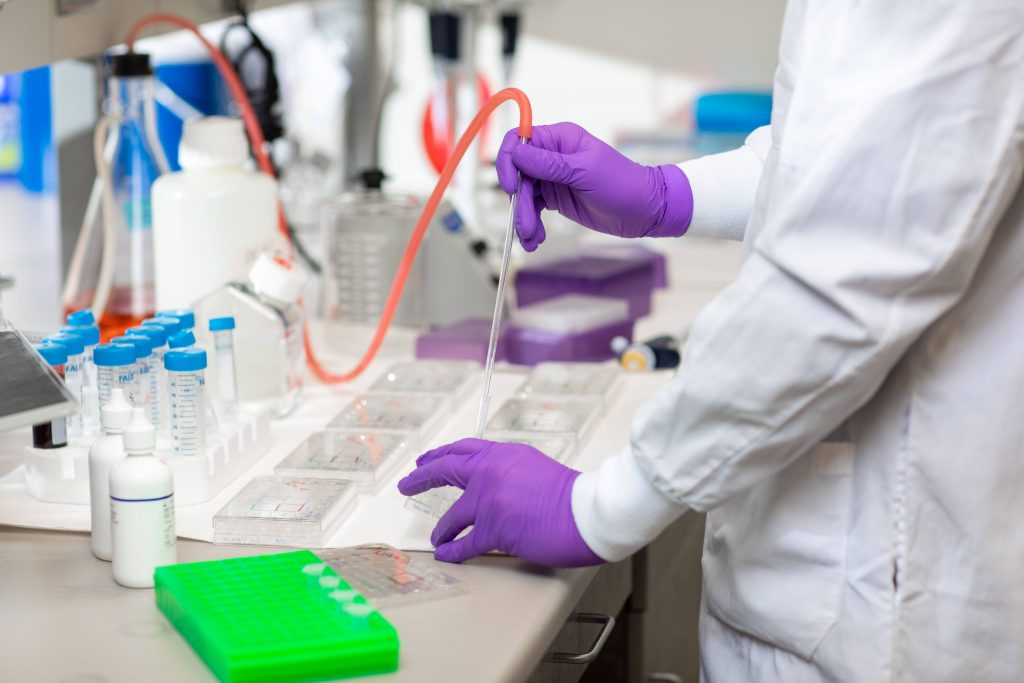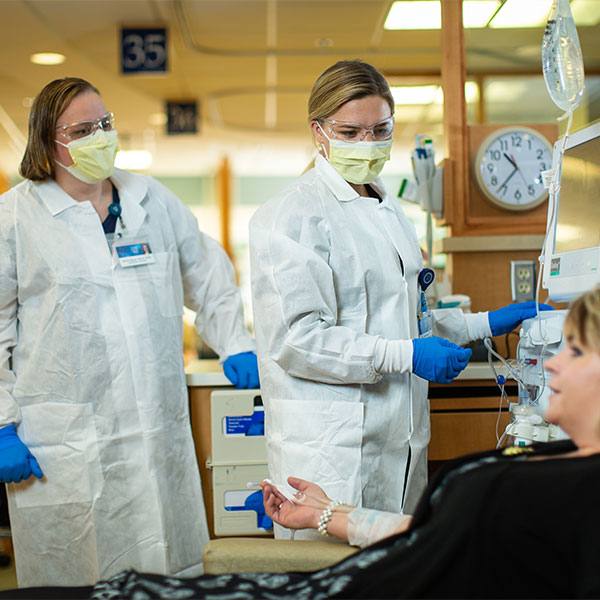-
Mayo Clinic Q&A podcast: Manufacturing new treatments with biotherapeutics

Through research, clinical trials and biomanufacturing, Mayo Clinic’s Center for Regenerative Biotherapeutics is working to develop new types of medicines derived from the human body to treat chronic and age-related diseases.
Biologics are therapies that come from human sources — cells, blood, enzymes, tissues, genes or genetically engineered cells — for use in medicines. Biomanufacturing is focused on manufacturing commercial grade biologically based medicines for treatment. Some examples include the use of stem cells, gene therapy and cell therapy, and 3D printing of tissues and organs.
"The important thing is that there's an opportunity to use these type of therapies to cure rather than just treat patients as we move forward looking at different ways of being able to use these products," says Dr. Julie Allickson, the Michael S. and Mary Sue Shannon Family Director of Mayo Clinic's Center for Regenerative Biotherapeutics. "It's definitely a bright future." Dr. Allickson also is the Otto Bremer Trust Director of Biomanufacturing and Product Development in the Center for Regenerative Biotherapeutics.
Mayo Clinic is working to move cellular discoveries from the lab to clinical trial and into commercially available therapies. To move technologies forward, partnerships are key.
Mayo Clinic has formed a strategic collaboration with National Resilience Inc. to establish Rochester, Minnesota as a center for biomanufacturing regenerative technologies. Mayo also has manufacturing facilities in Jacksonville, Florida and Phoenix.
Recently, Mayo Clinic, Hibiscus BioVentures, and Innoforce announced the launch of Mayflower BioVentures, a cell and gene therapy accelerator dedicated to identifying and forming companies around technologies that address unmet patient needs. All three organizations have a financial interest in the Mayflower collaboration. Mayo Clinic will use any revenue it receives to support its nonprofit mission in patient care, education and research.
"There is a lot of investment in the field," says Dr. Allickson. "And Mayo Clinic is certainly prioritizing this across the enterprise, to allow the patients here to have treatments focused on rare and complex diseases. Here at Mayo Clinic, we want to make sure that that happens."
On the Mayo Clinic Q&A podcast, Dr. Allickson discusses the near- and long-term future of biomanufacturing and biotherapeutics.
Watch: Dr. Allickson discusses biotherapeutics.
For the safety of its patients, staff and visitors, Mayo Clinic has strict masking policies in place. Anyone shown without a mask was either recorded prior to COVID-19 or recorded in a nonpatient care area where social distancing and other safety protocols were followed.







